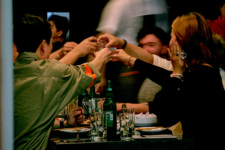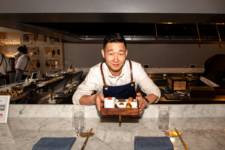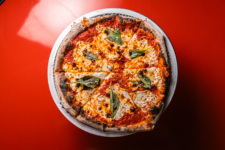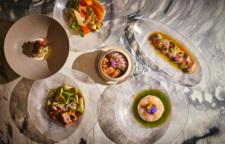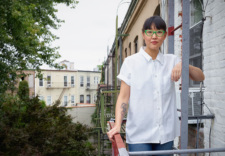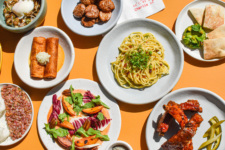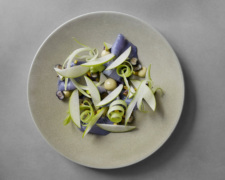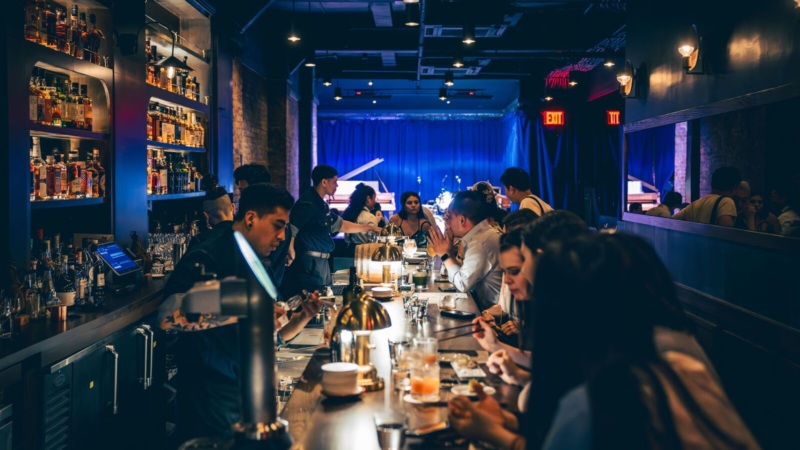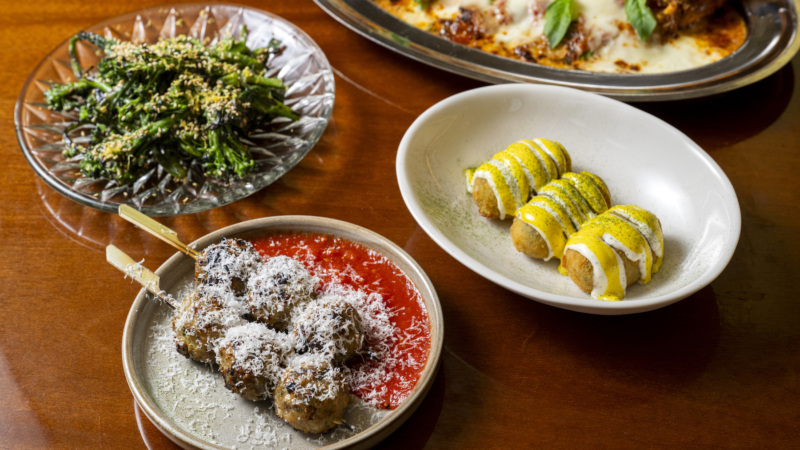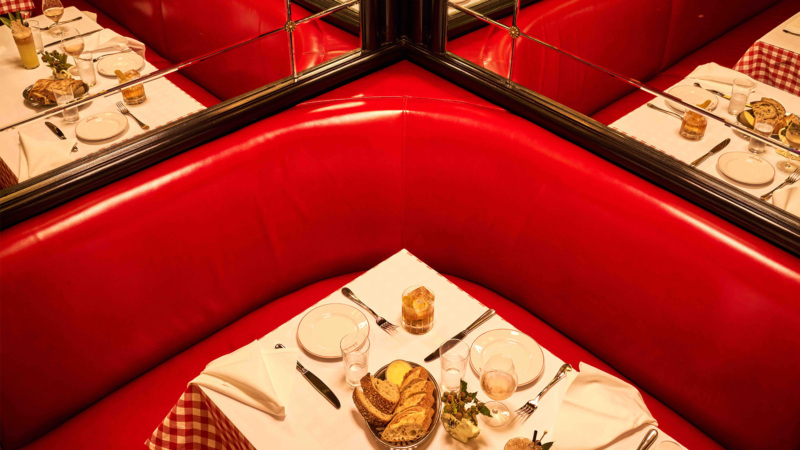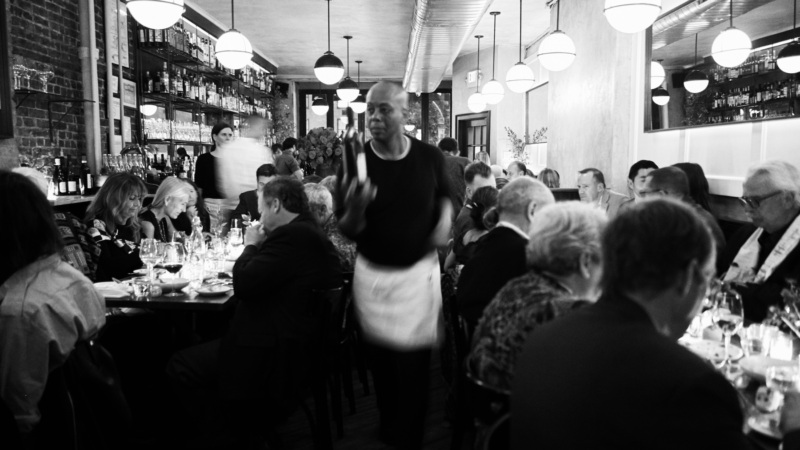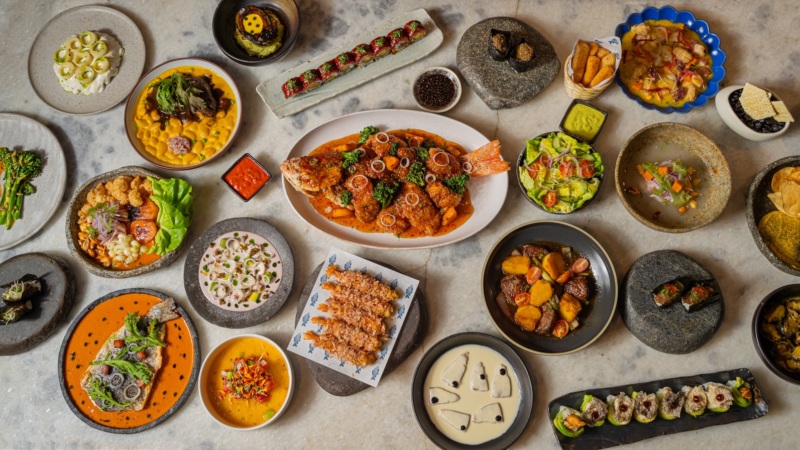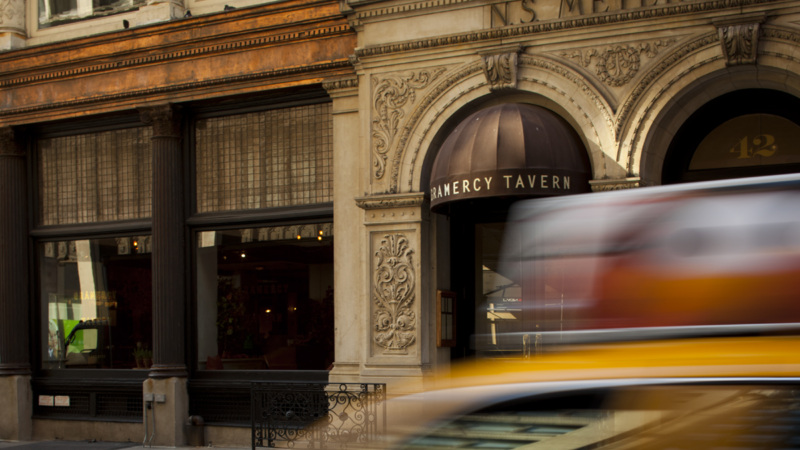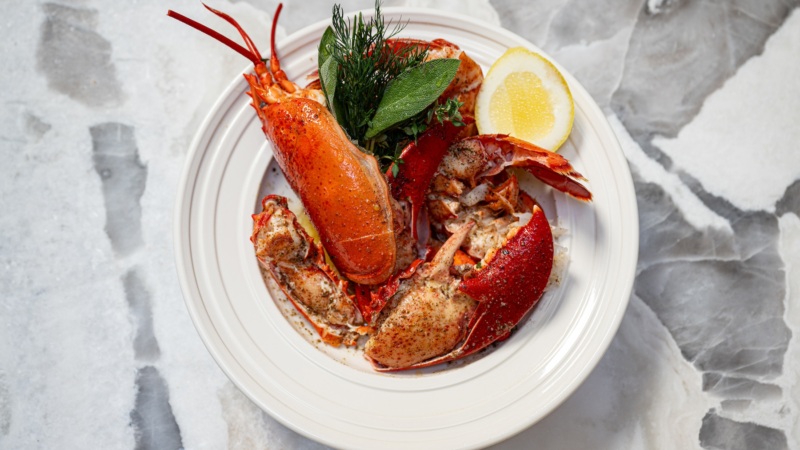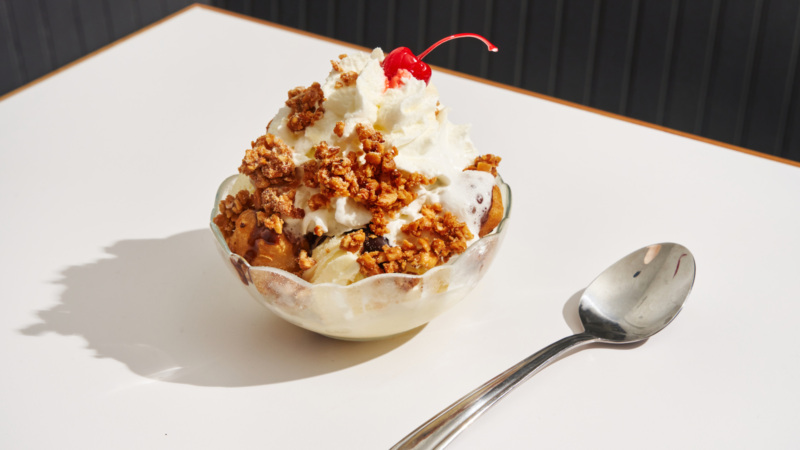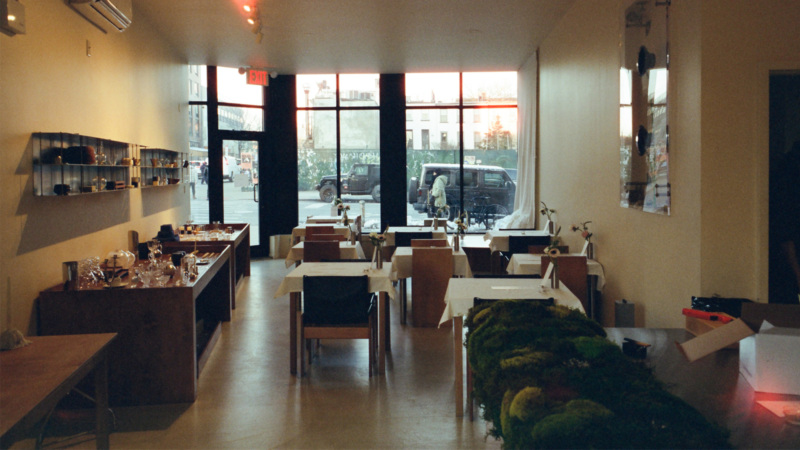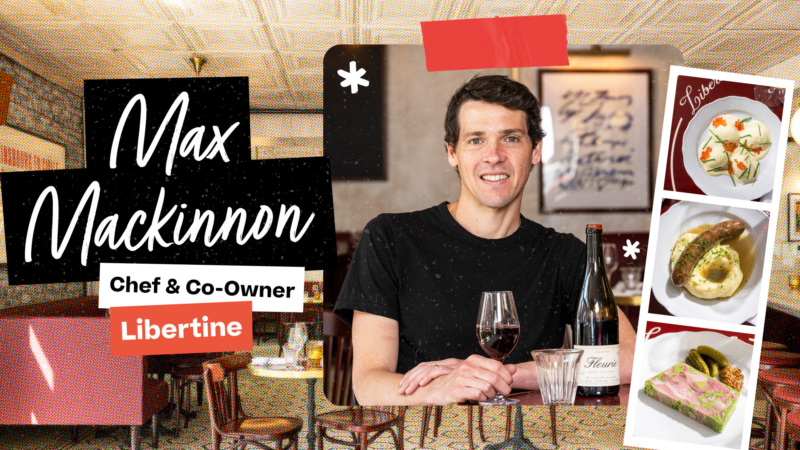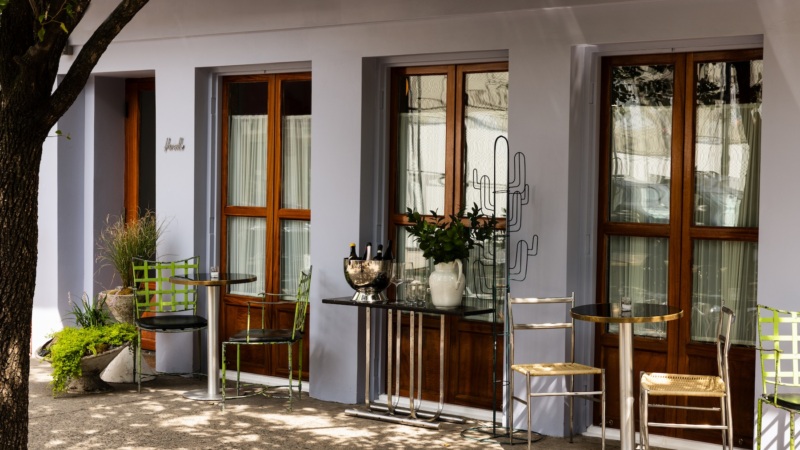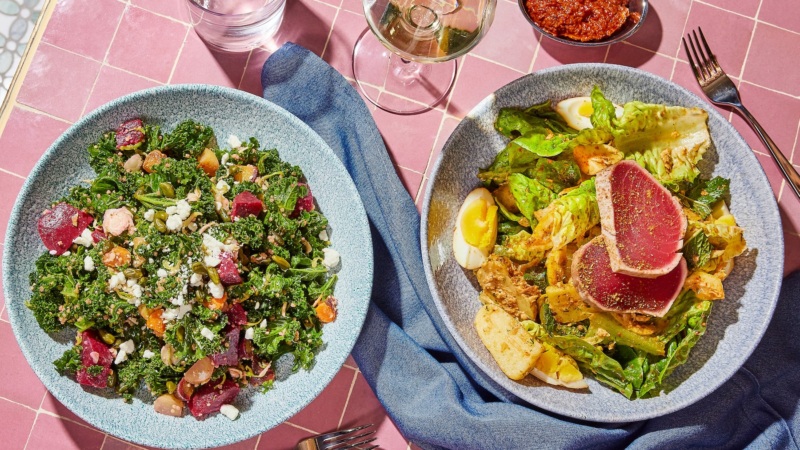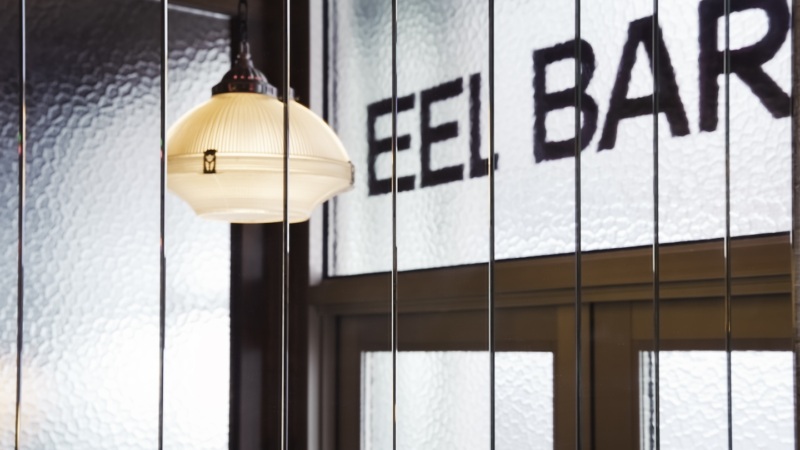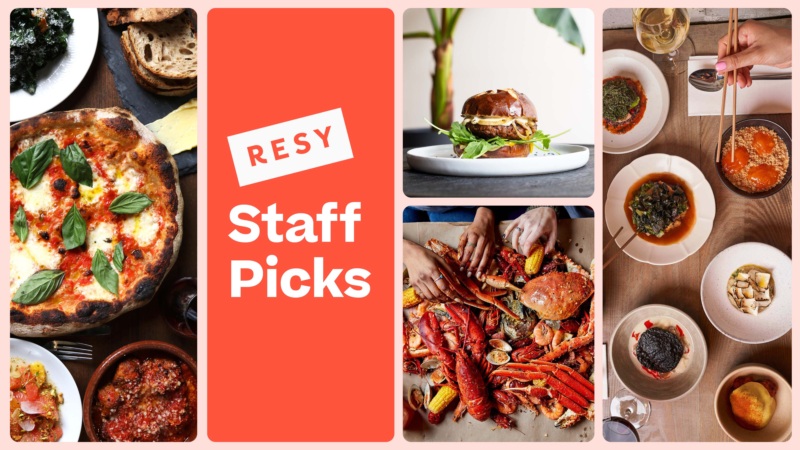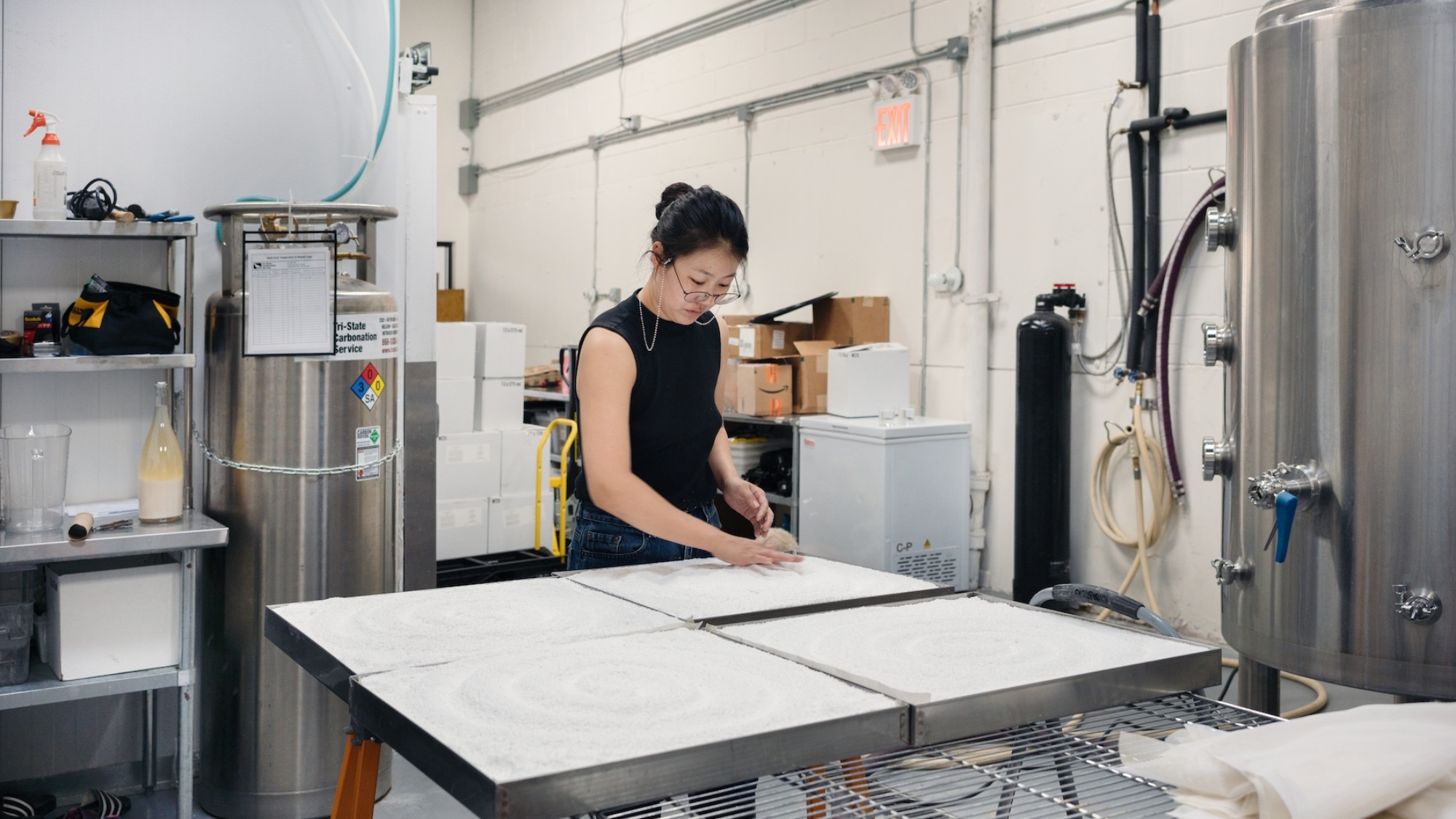
In New York, Hana Makgeolli’s Alice Jun Is Building a Homegrown Sool Empire on Her Own Terms
In the back room of Hana Makgeolli in Greenpoint, Brooklyn, it’s mostly silent, with rice wine quietly fermenting in large steel vats. But in the front, where you’ll find a closet-sized kitchen and an airy tasting room, it’s often bustling.
Diners from across the city meet at the tasting room for sips of Hana Makgeolli’s sool, or Korean alcohol, and bites of their anju, Korean-inspired drinking foods like pajeon or kimchi arancini. Nearly every other week, the space is occupied by a visiting chef churning out some of the most exciting cultural crossovers that are not just paired with, but often cooked with Hana Makgeolli’s freshly brewed and bottled Korean rice wines.
For a recent collaboration with Puma Yu’s from Athens, Ga., live clams were steamed with butter, wine from Hana Makgeolli, and red curry paste so when the clams opened up, they released their natural juices into the sizzling pan. A pop-up featuring Lil Deb’s Oasis out of Hudson, N.Y., produced a firm, snappy sausage of jjigemi, Hana Makgeolli’s wine byproduct, that was used to speed up the fermentation of ground pork for a nicely sour flavor that complemented pickled chiles.
It wasn’t always like this, however.
Hana Makgeolli got its start in 2017 when Alice Jun, a home brewer, decided to launch her own line of Korean rice wines, building out a commercial brewery in 2020. To this day, there’s no place quite like Hana Makgeolli in New York, or even the U.S., for that matter. It is the only makgeolli brewery operating in this country — a feat that reflects the challenges of doing so, which involve everything from the bureaucratic to the logistical. Hana Makgeolli bucks commercial practices and ferments its rice wines the ancient way, using nuruk (more on this later). And even though it got its start as a brewery, Hana Makgeolli today is so much more, including a full-fledged restaurant with a compact menu of creative Korean-inspired dishes and a host to so many imaginative pop-ups.
The brewery, however, is at the heart of the business, and that’s why Jun makes it a point to invite everyone into the process. At any point in time, Hana Makgeolli brews 1,000 liters of wine from some 800 pounds of organic rice. Visitors to the brewery can get a behind-the-scenes look at six different sools — including the flagship makgeolli — in the making. It also offers 45-minute brewery tours Thursdays through Sundays, which end with a guided tasting of three wines.
Jun loves sharing what makes her wines so special. It’s something deeply personal for her; she picked up the fundamental recipe for brewing sool from her father, a makgeolli home brewer, in their Los Angeles kitchen. Makgeolli only requires three ingredients: water, rice, and the fermentation starter, nuruk, a small cake of dried and fermented wheat, barley or rice that contains wild fungi, yeast, and bacteria endemic to its local environment in Korea.
Nuruk is also what makes sool production so tricky, because it’s often unpredictable to work with. Nuruk is what differentiates sool, or Korean alcohol, from other brews from around the world, but modern mass production often eliminates this foundational ingredient.
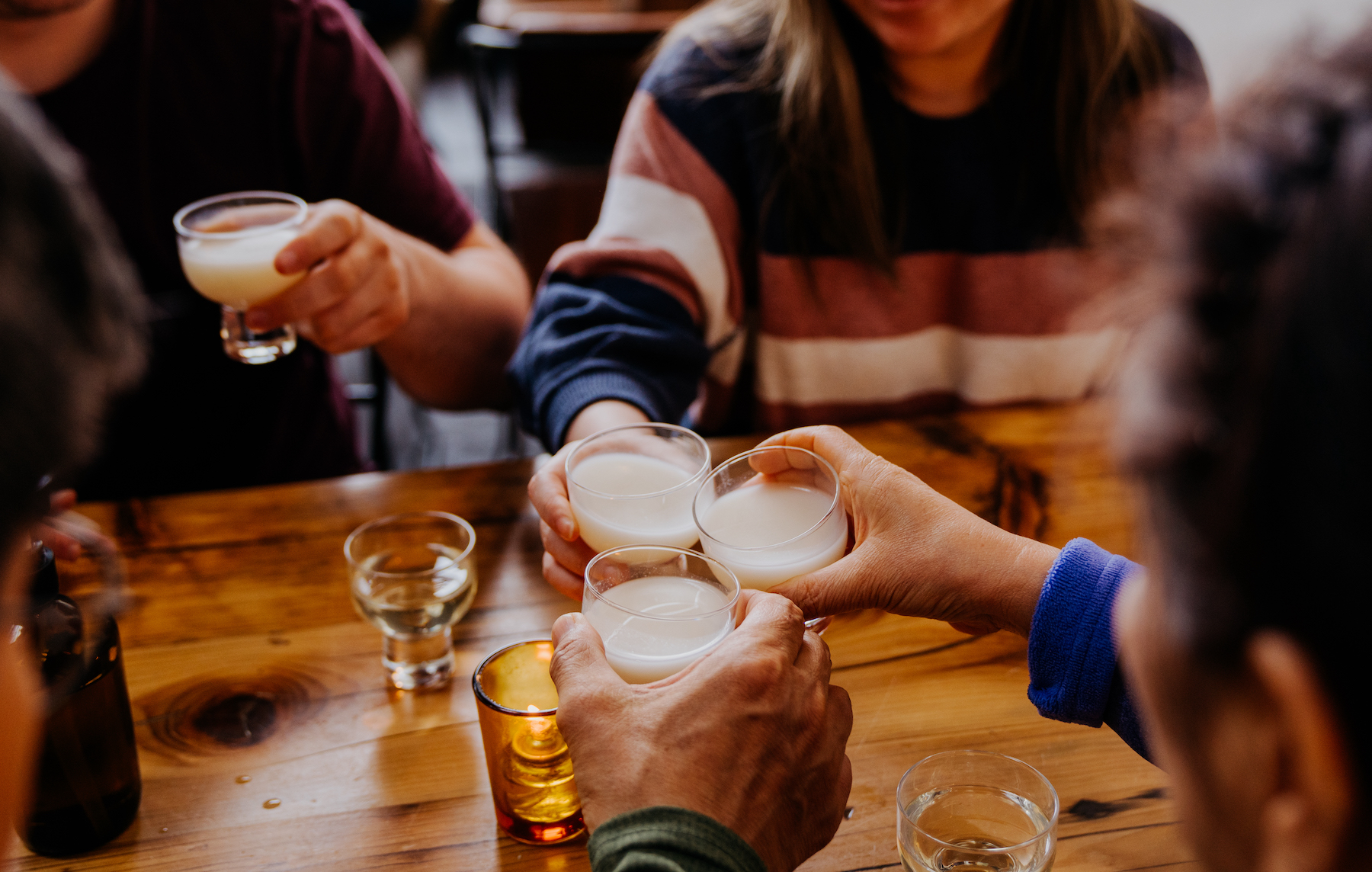
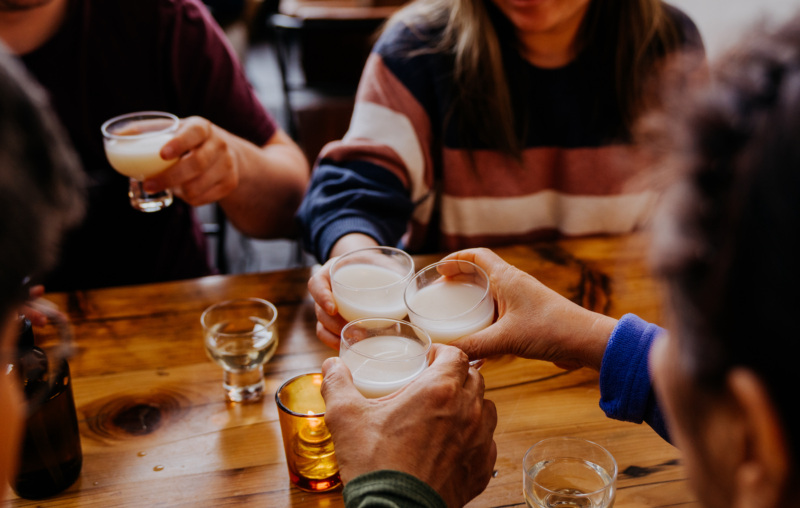
Depending on her audience that day, Jun’s history lesson might go as far back as 57 B.C., when sool brewing originated as part and parcel of women’s domestic labor, alongside the fermentation of doenjang (soy bean paste), gochujang, and kimchi. “But that narrative is left out,” I tell her during a tour. “Yeah, of course, because the world sucks,” she answers back. Jun flat out reverses the global erasure of women from the brewing narrative by featuring a curvaceous figure of a woman as her logo.
There are as many Korean sools as there are varietals of European wines but, at the start of the 20th century, when Japan colonized Korea, home brewing was banned and brewing became industrialized for tax purposes. When a post-colonial dictatorship, famine, and war followed, sool companies made do by using tapioca, lab-grown yeast, and aspartame in their brews instead of the traditional nuruk.
“Korean sool has the opportunity to shed itself of that story,” says Jun. “We’re stewards of it.”
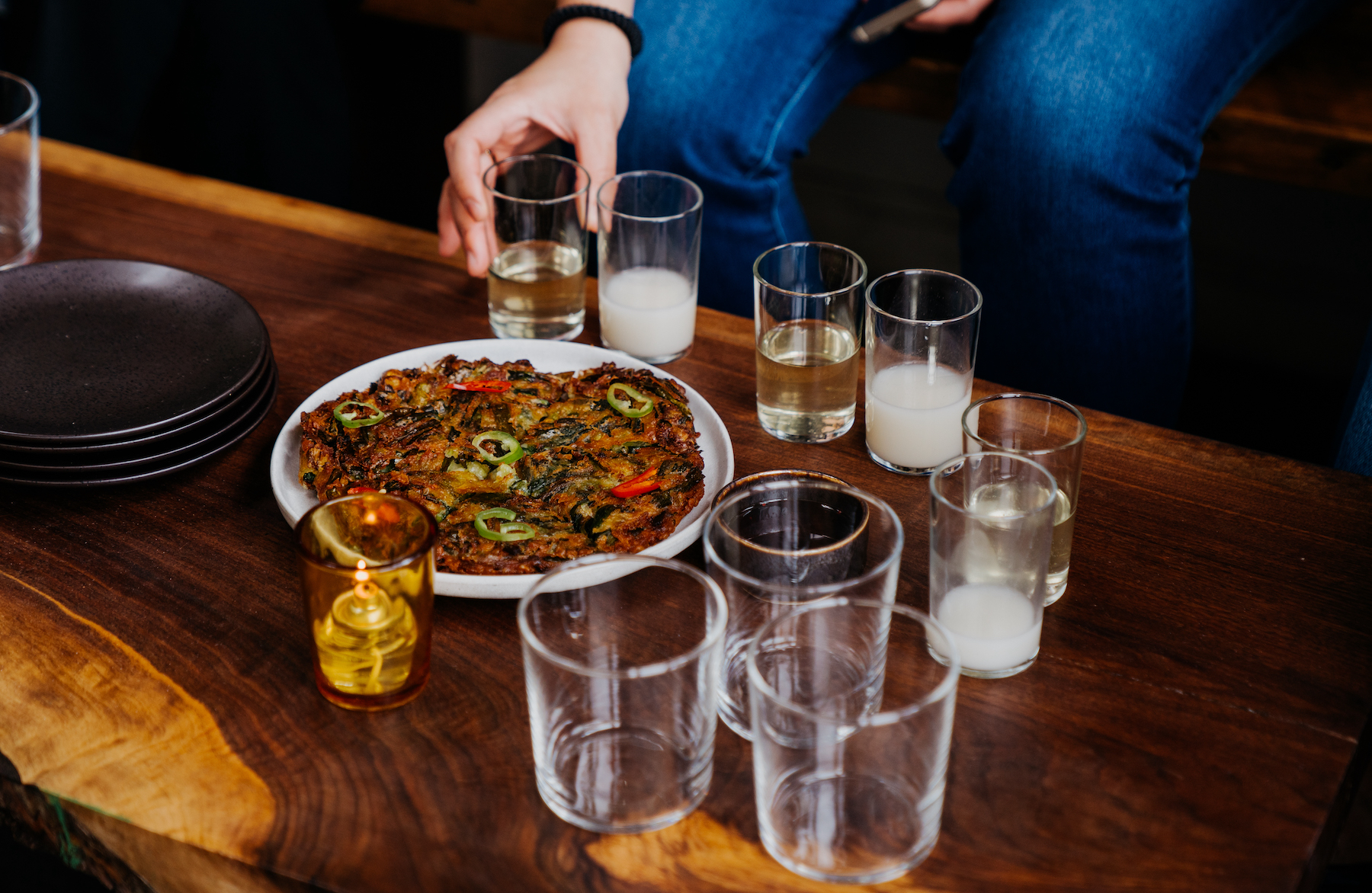
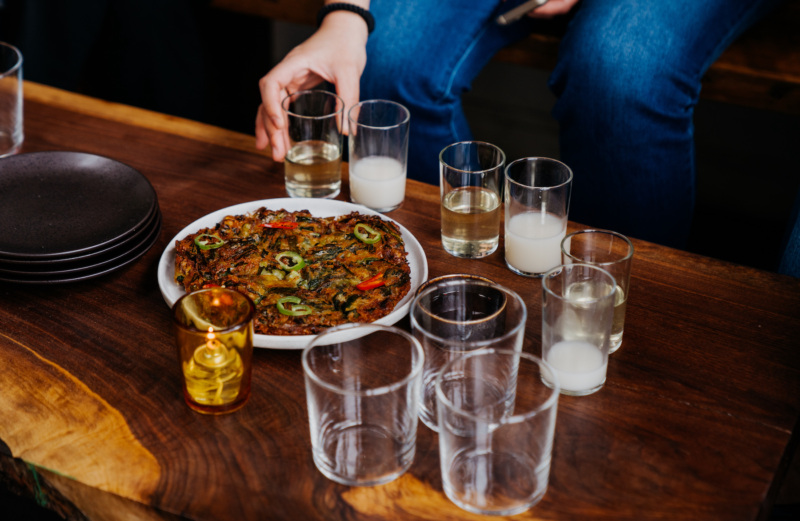
At Hana Makgeolli, Jun runs a back-to-roots operation that’s made all the difference. Her now business partner, John Limb, vividly remembers his first sip of her makgeolli at a dinner party in 2017. He’d never tasted anything so smooth, rich, boozy, or fizzy.
By the end of every brewery tour, when you have a chance to taste the sools for yourself, you’ll likely reach the same epiphany as Limb did. Tastings might include the flagship takju, Jun’s sedimented, milky makgeolli; a brown rice takju; a yakju, which is the clear liquid siphoned from a makgeolli that’s naturally after a period of four weeks; a hwaju infused with chrysanthemum and hydrangea; and any limited batch that Jun may have on hand. On occasion, the brewery also offers a hands-on Makings of Makgeolli class that teaches you how to make your own home brew, too.
Hana Makgeolli’s wines have also made their way into some of the city’s best restaurants. At Atomix, and its sister restaurants, Atoboy and Naro, beverage director Jhonel Faelnar has carried Hana Makgeolli’s brews since the first release of the signature takju. He loves how they are fermented “bone-dry,” making them “supremely food friendly.” They’re offered by the glass, bottle, and as part of pairings, and you can also find them at Hooni Kim’s Meju, Ron Yan’s Tolo, and Chambers, in Tribeca.
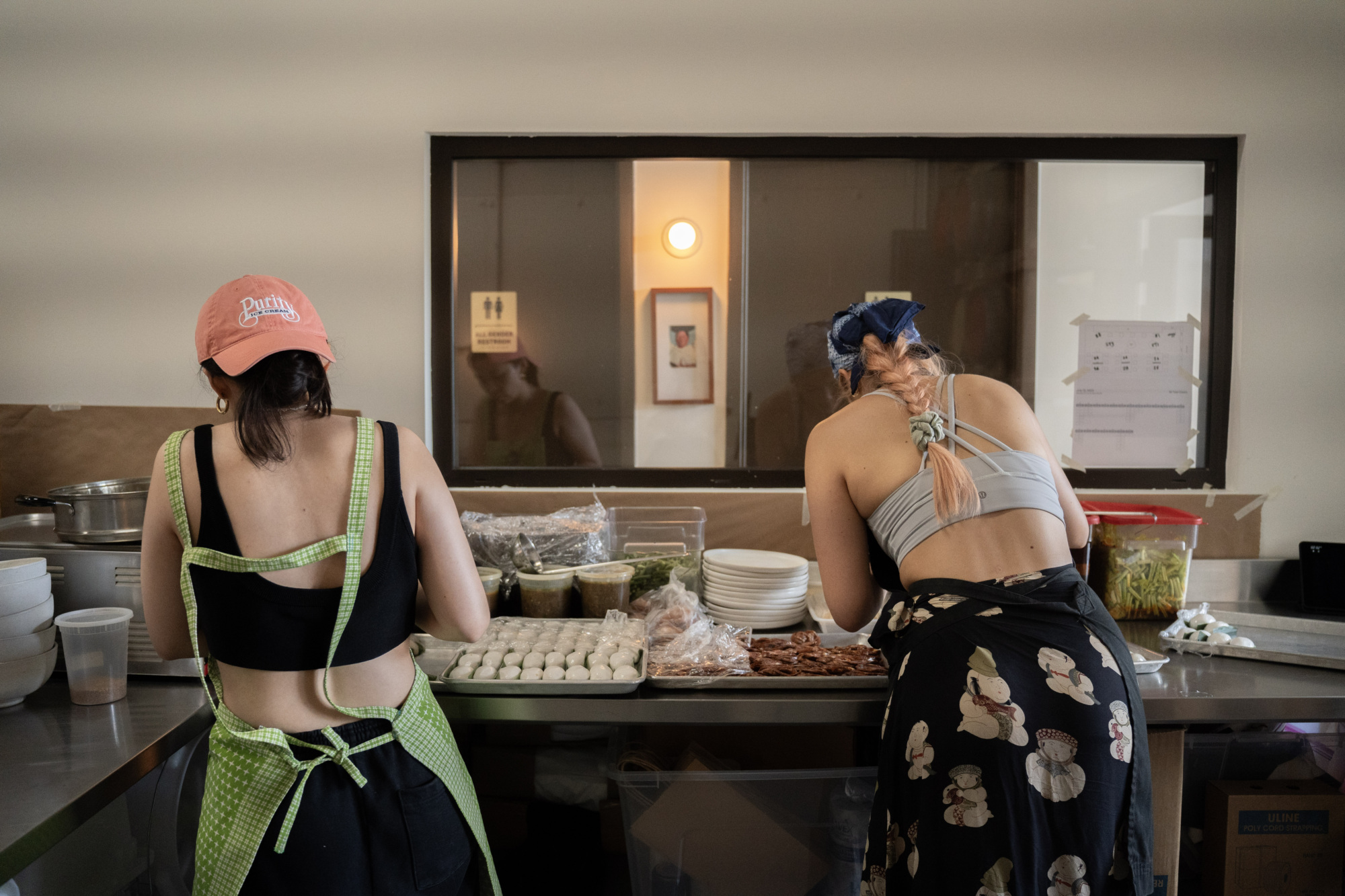
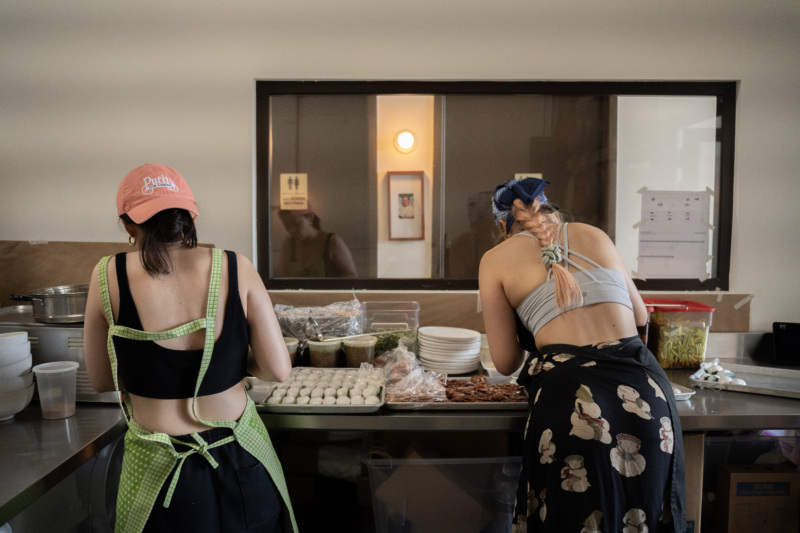
The cooking inside Hana Makgeolli’s brewery and tasting room is also outstanding. The in-house menu is tight and creative, with a focus on anju, or drinking foods, like a stuffed cabbage mari swimming in a doenjang broth. Visiting chef pop-ups have supported a whole community of chefs — particularly historically disenfranchised women of color — urging them to use Hana Makgeolli’s wines as a jumping off point for creative freedom. Shrimp marinated with Hana Makgeolli rice wine, soy sauce, and Asian pear was served over rice with a soy-cured egg when D.C.’s Magpie and the Tiger popped up last April. And when Matthew Yee of Queenie’s stopped by in March last year, he drizzled a milky rice wine syrup over coconut sticky rice.
Seven years after launching Hana Makgeolli, Jun continues to push her wines into new territories. She’s been steadily expanding Hana’s beverage portfolio, launching new styles and categories of rice brews for the first time in the company’s history. First, there was a spicy Cajun-style makgeolli fermented with peppers and plums in collaboration with KJUN chef Jae Jung, followed by a silky buttery yakju processed like a whisky and aged in oak barrels from the now-closed whisky distillery, MÔTÔ Spirits.
In December, she launched Hana Makgeolli’s first-ever spirit, a soju. It’s made by fermenting the flagship takju makgeolli for an extra 72 days “to get it as strong as possible,” and distilling it in a copper still at Matchbook Distilling Co. to produce a soju that’s richer and more full-bodied than almost anything else out there. Whereas the standard green bottle of soju rests somewhere between 15 and 25% alcohol by volume, Hana Makgeolli’s soju is so strong, at 60% ABV, that it would evaporate if poured too long before consumption.
“It’s my Roman empire,” Jun says proudly.
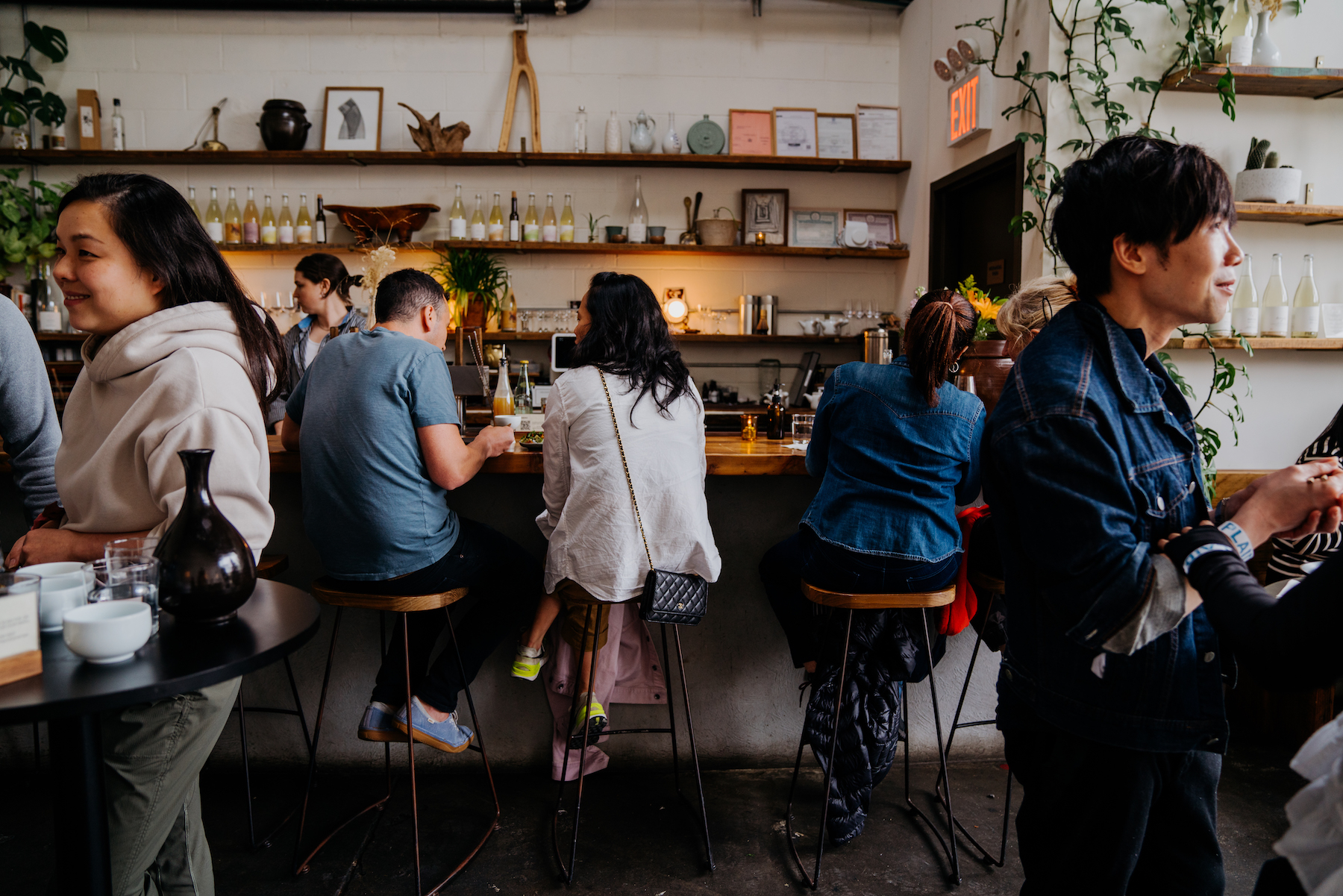
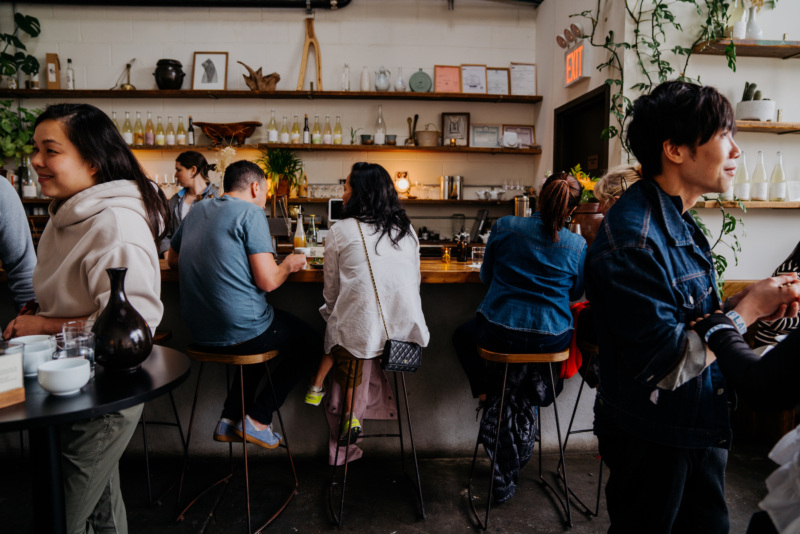
This month marks the sixth release of the subscription-based Hana Sool Club, with an upcoming Lunar New Year release of four bottles featuring first access to the latest batch of Forbidden Takju, a sedimented black rice brew with notes of blackberry and raspberry.
And we’ll see even more pop-ups this year as well. Of particular note is Polly Yim of Berlin-based QU Fermentation Studio, who is planning a month-long residency culminating with a food pop-up that includes her long ferments like soy sauce and gochujang. Artist collabs will also transform the tasting room into a temporary gallery.
Throughout it all, Jun remains steadfast in her goal to show the versatility of sool, and the sheer depth and breadth of it. “I’m pretty proud of that,” she says.
Hana Makgeolli is open Thursday and Friday from 5 to 10 p.m., and on Saturday and Sunday from 2 to 10 p.m.
Discover More
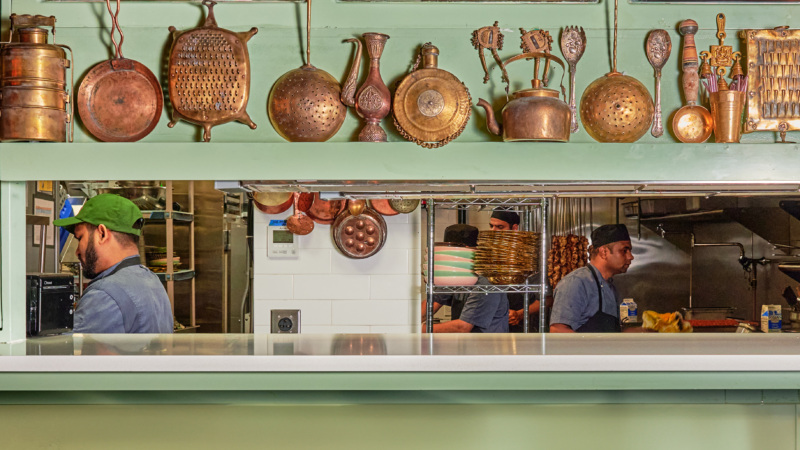
Stephen Satterfield's Corner Table



